

Volume 37
Published on November 2023Volume title: Proceedings of the 7th International Conference on Economic Management and Green Development
China's official media business model transformation pressure is increasing day by day. The contradiction of the binary system business model is becoming increasingly prominent. Official media need to take into account the goals of ideological propaganda, commercial operation, and improving profitability. Against this background, subcultural capital has become the favored breakthrough of traditional media. Cultural capital and subcultural capital, as a kind of resource that can be invested in and reproduced, reveal the internal logic of the subculture industry and provide a new perspective for people to study the effect of subcultures on the operation of official media. This paper uses the economic management model SWOT-PEST mode analysis model to explore the impact of subcultures communication on the operation of China's official media, as well as the advantages, disadvantages, opportunities, and threats brought by cultural communication in the political, economic, technological, and social environment. This paper tentatively puts forward the concept of “mainstreaming of subculture” and probes into the contradiction between official media's subcultural capital investment and the development path of subculture itself.

 View pdf
View pdf


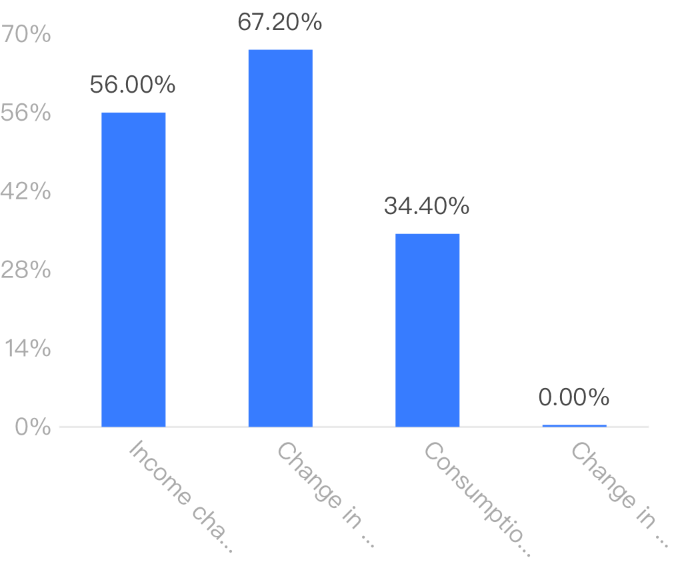
In recent years, with the improvement of people's living standards, e-commerce has gradually emerged, gradually replacing the traditional brick-and-mortar store-based shopping method. As a new way and business model, online shopping aims to realize the electronization of all links of trade activities and the unification of online business flow, logistics, capital flow and information flow. This kind of shopping pattern is the main development direction of future trade. Through questionnaire survey, comparative analysis and literature review, this paper summarizes the characteristics, advantages and disadvantages of two different shopping methods (online shopping and offline shopping). Then, combine the advantages of the two shopping methods to provide merchants and consumers with different solutions and suggestions.

 View pdf
View pdf


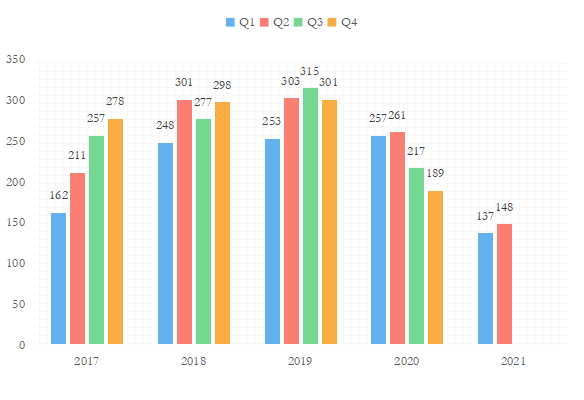
The research background is that the search field is gradually becoming a hot object on the internet and can be combined with a very wide range of fields to produce marginal effects. The research optional of the article is analyzing the disadvantage of SOGO and the advantage of Tencent. The study content is that what trouble are SOGO face and how SOGO cope with the dilemma, how Tencent solves the single revenue structure and develops the search area. The purpose of the article is that explaining Tencent's motives for acquiring SOGO and what benefit SOGO can take to Tencent. The key findings of the article is that Tencent acquires SOGO can help Tencent develop AI area. The research significance is that inspiring people to think that Tencent's acquisition of SOGO should not only be limited to search area, but also expand horizons into the field of AI. Investors can keep a positive position of the future of Tencent.

 View pdf
View pdf


In today's fast-paced economy, an increase in income frequently results in improved educational resources. This paper employs an OLS model to examine the relationship between household income and educational attainment. Experiments were conducted with control variables and other steps using data from the 2018 China Family Panel Survey (CFPS), and the results revealed a positive coefficient on the household income variable, providing preliminary evidence that household income has a positive effect on educational attainment, i.e., an increase in household income results in a significant increase in an individual's educational attainment. The purpose of this study is to analyse income and education levels based on individual and household data, to examine the educational base required for future social development, to lay the groundwork for future research, and to suggest that future policies should pay more attention to the distribution of educational resources, as improvements in household conditions can lead to some households falling short of predicted educational levels due to the unequal distribution of educational resources.

 View pdf
View pdf


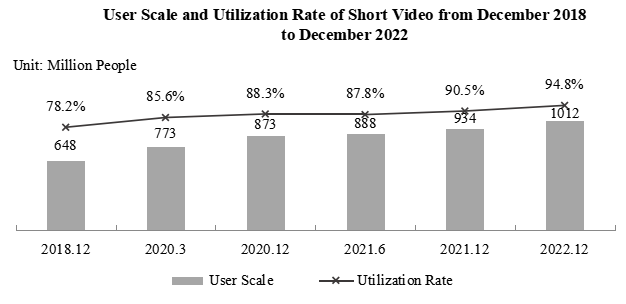
With the rapid popularization of the mobile Internet, the user scale of the short video market continues to grow, and the industry competition is fierce. Nowadays, short videos have been deeply integrated into people's entertainment life. As the head platform in the short video market, Douyin has developed rapidly in recent years and occupies an unshakable position in the global market. This paper first discusses the competitive environment of the short video market when Douyin has launched and the current development status of short video platforms at home and abroad. Secondly, it deeply analyzes Douyin's competitive business strategy in the homogeneous market. Then, based on the SWOT model, the core strategy of Douyin is studied in depth. Finally, it summarizes the reasons why Douyin stands out in the fierce competition environment of the short video industry and makes suggestions for the future development direction of Douyin. This study finds that high-quality content, powerful technology, and innovative business are the basic elements of competition in the short video market, pointing out the direction for the development and foothold of other short video platforms and related industries.

 View pdf
View pdf


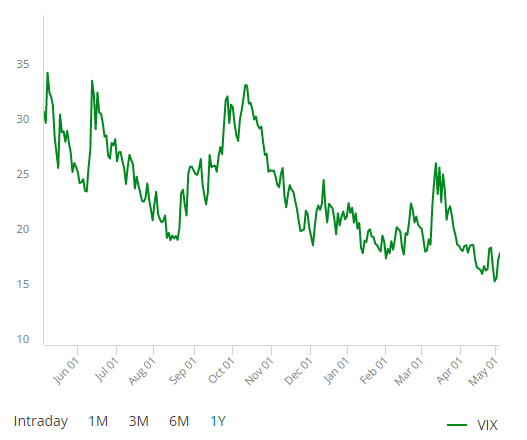
This research paper focuses on providing a comprehensive understanding and introduction to the VIX index. The history of the VIX index, its applications, and related products are systematically analyzed. It also derives the formula for the VIX Index (the volatility index introduced by the CBOE) using the standard deviation formula. A detailed explanation includes example data using Excel to calculate the VIX index for a particular day, an analysis of the error scenarios generated, and ways to improve it. Studying the VIX index helps us better understand today's financial investment situation and analyze investments in a case with VIX index criteria.

 View pdf
View pdf


The subprime crisis of the late 2000s had a profound impact on the global financial system, triggering an economic downturn of unprecedented magnitude. This paper provides a comprehensive analysis of the causes, consequences, and lessons learned from the subprime crisis. The crisis emerged from a combination of factors, including the expansion of subprime mortgage lending, relaxed underwriting standards, and the bursting of the housing bubble. Financial institutions eagerly pursued higher profits by issuing mortgage loans to borrowers with questionable creditworthiness, leading to a surge in loan defaults and foreclosures when the housing market collapsed. The consequences of the crisis were far-reaching. It resulted in widespread financial turmoil, with significant losses incurred by interconnected institutions worldwide. The global economy experienced a severe recession, characterized by high unemployment, declining consumer and investor confidence, and disruptions across various industries. The subprime crisis highlighted critical weaknesses in risk management practices, regulatory oversight, and financial market mechanisms. However, it also served as a catalyst for reform. Policymakers implemented measures to strengthen financial systems, enhance transparency, and improve risk assessment and management. Revisions to regulatory frameworks, stricter stress testing, and reinforced consumer protection measures were among the responses.

 View pdf
View pdf


Many factors affect consumers' purchase intentions, such as the price of products, consumers' trust in brands, the quality of branded products, and consumer perception. However, there is no unified theoretical framework to define a specific method to guide consumers to generate purchase intentions for specific brand products. In order to explore this still ambiguous field, this study uses the literature research method and collects and analyzes data on consumers’ willingness to pay for premiums, data on the influence of trust on consumers’ purchase intentions, and brand product quality by looking at four important factors that affect consumers’ purchase intentions. The multiple regression results of several relevant parameters, and the data analysis of multiple factors within the range of consumer perception. The results show that: most consumers can accept a certain degree of a price premium; consumer trust has a great influence on consumer purchase intention and brand product quality is the most influential factor affecting consumers' purchase intention. Finally, multiple subdivided factors in consumer perception showed a high degree of consistency, indicating that consumer perception is not a vague and broad concept.

 View pdf
View pdf


In the development of the sports goods industry, marketing, as an important management tool, has a significant impact on the growth of businesses. Not only can a solid marketing plan provide a thorough sales network and system for the sporting goods business, but also solve the problems of product sales and fund recovery for enterprises, laying a solid foundation for their development. The consumption of sports goods has shown increasing business opportunities in today's rapidly developing economy. The sports goods industry is also seeking development in this market with expanding demand, and many international brands stand out in the fierce competition. Nike, founded in 1972, has become a leader in sports brands today. Nike's unique marketing strategy is the key to success. Nike's marketing strategy has important guiding significance for the development of the sports goods industry. This article takes Nike as an example, analyzes the impact of Nike's marketing strategy on the sports goods industry, discovers innovative points of Nike's brand marketing strategy, explores key factors for the success of the marketing strategy, and provides effective references for the sports goods industry.

 View pdf
View pdf


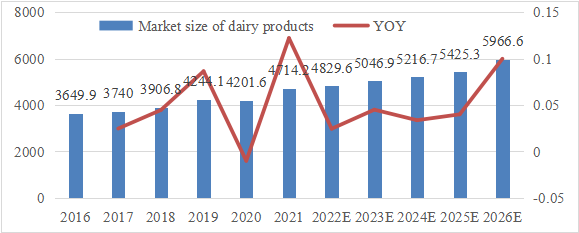
China's dairy industry has experienced rapid development in recent years, primarily due to the country's growing population and improved living standards. Dairy products have become an essential part of people's daily lives. The leading companies in focus are Mengniu and Yili. This article provides an in-depth analysis of China's dairy industry, focusing on the leading companies Mengniu and Yili. The industry has experienced rapid development due to China's increasing population and improved living standards, with dairy products becoming an indispensable part of daily life. The article examines the size and value chain distribution of the industry, which is dominated by brand manufacturers, and analyzes both the supply and demand sides. The per capita consumption of dairy products is increasing, and high-end liquid milk is gaining popularity. With a valuation analysis using the comparable company valuation method on Mengniu and Yili. The article provides a detailed analysis of the size and value chain distribution within the industry, which is predominantly led by brand manufacturers. Both the supply and demand sides of the dairy products have been examined. Per capita consumption of dairy products is continuously increasing, with a growing popularity of high-end liquid milk. Despite facing challenges, the dairy industry in China has enormous potential for growth. These results shed light on guiding further exploration of Yongsheng Yang, Understanding the development of China's dairy industry.

 View pdf
View pdf




